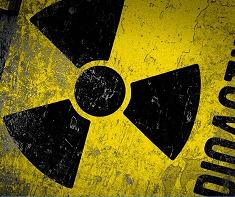Nuclear Energy Causes Global Warming

We need energy to heat our homes and provide electricity for our appliances.
Most commonly in our world, coal, oil, natural gas, and radioactive [nuclear] materials, especially the heavy metal, Uranium, supply our energy.
Radioactive elements that produce nuclear energy do it a certain way – and the same way each time. The basics are easy to understand:
These materials, such as Uranium, change into other materials during which a huge amount of energy is released. Remember Albert Einstein’s famous equation, e=mc2. Well, it is kind of like magic – that c2 is a very large number; e is the energy you get at the end; m is the very tiny amount of mass or “stuff” that changes from stuff you can see into unseen but powerful energy.
But before we go on we need to make sure we know what we are talking about. What is energy? Several kinds come to mind. We have mentioned three already: nuclear, electricity and heat. There is also “mechanical motion”; think about working out at the gym. Notice another thing at the gym – one’s muscles get warm; so heat is produced as well as mechanical motion.
Another thing about energy: once it is released, it never goes away. It can never be destroyed. This is a perfect rule with which everyone agrees. It is actually called a “law” – the first law of thermodynamics.
What happens to the energy, after we use it, such as when I have finished moving my fingers typing this sentence?
It is lost as waste heat out “there” somewhere. It is dispersed and spreads out in all directions and can not be reused. This is called entropy and is the second law of thermodynamics.
Now what does that have to do with nuclear power and global warming?
Once you release all that energy from Uranium, as in a nuclear reactor, it is here forever, except for some fraction that radiates out into outer space as “long-wave radiation.” The rest goes into the air, waterways, glaciers, dirt and rocks as waste heat, also called thermal [heat] pollution, increasing the temperature, thereby bringing about global warming.
Is nuclear the only the only source of energy that releases waste heat?
No. Coal, oil and natural gas [hydrocarbons, so-called “fossil fuels”] also release waste heat when burned.
Why is this fact not included in the title of this article?
Because many people already know that use of hydrocarbons causes global warming. Also, many believe that nuclear power does not cause global warming and that it may actually solve the global warming problem. Nothing could be further from the truth, because it produces heat and, therefore, thermal pollution.
What about greenhouse gases that are discussed on TV and the internet, such as carbon dioxide? What about other greenhouse gases such as water vapor and methane?
This is best approached by admitting that this is an area of great conflict. Well-connected scientists almost universally claim that global warming is occurring, that it is from human activity, that activity that causes the emission of “greenhouse gases” [especially carbon dioxide or CO2]. These are gases that make up a small part of the air we breathe, but they are able to hold in heat.
Millions of people agree with this. Other millions disagree. Leaders [or misleaders] of both factions present plausible evidence of wrongdoing by and conflict of interest on the other side. Both are correct about this and we should not be surprised that this is the case. Though startling claims are made about the need to save the planet, it is really about money and power, meaning here a different kind of power, that of authority and control. Imagine the wealth and personal power to be derived from selling and controlling the flow of energy to billions of people.
Hydrocarbons produce CO2. Businessmen and their agents who back hydrocarbons stand to lose a great deal of money and power if CO2 elimination is made a top priority. The other side has its own investors who stand to profit by promoting nuclear power in competition with coal, oil, and natural gas energy sources, and also by selling CO2 reduction technologies. There are also military and political reasons for nuclear promotion. [Incidentally, this side also erroneously claims that nuclear power does not result in CO2 pollution.]
In fact, it appears that greenhouse gases have a small but definite effect and work together with the direct heat pollution discussed here to make the problem of global warming worse.
Neither side is interested in promoting the facts as presented in this report, because they both stand to lose. They both cause thermal pollution [global warming].
Fortunately solar and wind power do not cause thermal pollution because they use the Sun’s heat, which we will get whether we use it for our energy needs or not. These technologies have matured and their costs have come crashing down and will continue to do so. The best solution for the long-term supply of electrical energy is to institute these renewable sources at the municipal level and as a cooperative effort. This gives everyone energy independence.
Of course, municipally owned, cooperatively run energy sources will be vigorously opposed by hydrocarbon and nuclear barons and those who will want to privatize, for their own profit, renewable energy sources. They will want to centralize renewable energy, and dole it out to large areas through grids under centralized control.
We, the public, must assert and struggle for what is best for us and our Planet. If we do not switch to non-heat adding solar and solar-derived energy sources, we will burn to a crisp.
Morton S. Skorodin, MD, lives in Stillwater, OK and is an occasional contributor to The Oklahoma Observer

